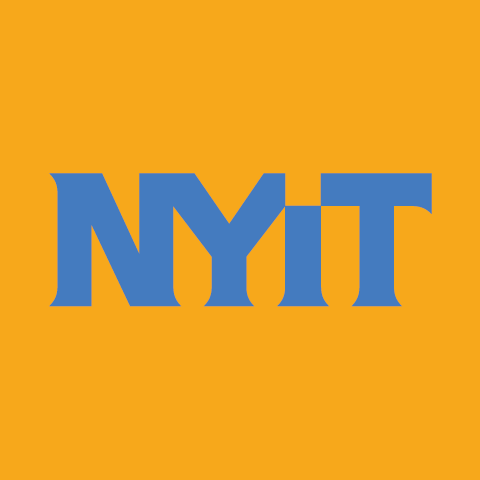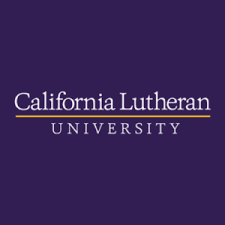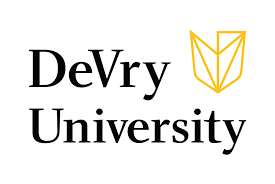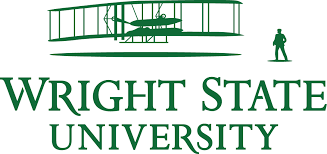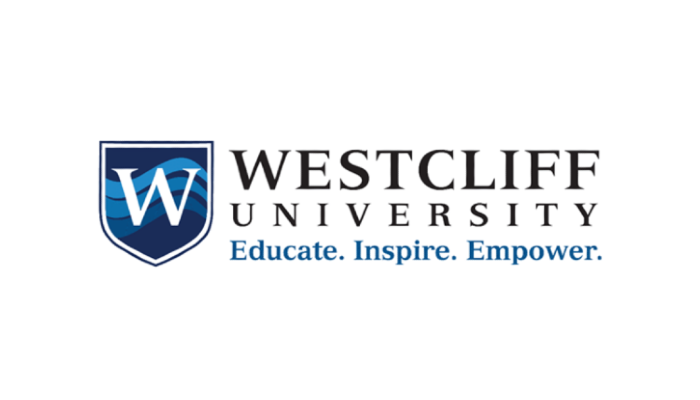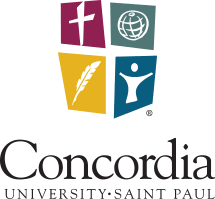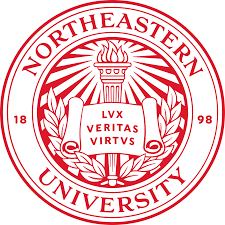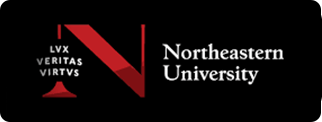Northeastern University Boston Campus
Boston
- Accomodation
- Services & Facilities
- Notable Alumni
About Northeastern University Boston Campus
The strength of a Northeastern education is experiential learning—it enables you to explore your path, find your passion, and acquire the skills and knowledge that prepare you for a lifetime of success. Our entire learning model is centered around your success. Powered by our signature co-op program and fueled by your inclination for exploration-driven excellence, experiential learning at Northeastern is the advantage that will set you apart in the real world. There’s no other university experience quite like it. Our graduates prove this every day.
Northeastern University Boston Campus Accomodation
As a Northeastern student, you'll have access to a variety of university housing. First-year students beginning in the fall term live in one of our popular Living Learning Communities (LLCs)—themed housing environments that connect students of similar academic and personal interests. LLCs are a great way to enrich your academic experience outside of the classroom and to form long-lasting bonds with other students who share the same values and enjoy the same activities.
- Residence Halls
- Most new students will share a room with one or two other students in traditional, co-ed residence halls that house between 75 and 700 students. Two of the larger halls each offer a dining hall and common study areas.
- Apartment Complexes
- The majority of upperclass students are housed in apartment-style residences at 780 Columbus, Loftman Hall, Davenport Commons, and West Village G and H. There are economy, standard, and enhanced rooms to accommodate students of all financial circumstances.
- Off-Campus Housing and Support Services
- Students who do not live in university housing are considered off-campus students. Off-Campus Housing and Support Services offer information, resources, and materials regarding off-campus student living.
Northeastern University Boston Campus Services & Facilities
The university has support services for all students, including health, career support, and guidance. It supports diversity in all forms and ensures an inclusive environment for which it has an Asian American Centre, Latinx Student Cultural Centre, Centre for Spirituality, Dialogue and Service, LGBTQA Centre, and Office of Global Services. Northeastern University also has multiple resources to support health and wellness by organizing recreational and athletic events. The athletic involvement of students is also a part of the culture at Northeastern University.
For students with entrepreneurial plans, the university has IDEA, a student-led Venture Accelerator, to give essential assistance and educational experience for a strong launch.
Northeastern University Boston Campus Notable Alumni
Jeff Clarke, Michael J. Epstein, Nikesh Arora (former senior VP & Chief Business Officer of Google and CEO of Palo Alto Networks), and Jane Curtin have been students of Northeastern University.
Fact & Figures
1898
Year of Establishment
25000
Total Students
14000
International Students
Programs
View All
Northeastern University Boston Campus Undergraduate Program
View All
Business & Management
Master of Science in Finance (STEM)
Advances in technology are shaking up the financial services industry in big ways. New positions now require not just knowledge of finance but also analytical and technical skills. In the D’Amore-McKim MS in Finance (Quantitative Finance), you’ll build your expertise in fintech—a combination of finance and technology—and business analytics.
Here, you’ll become a well-rounded financial professional through a blend of classroom instruction and experience-powered learning opportunities, such as building applied investment experience through our student-led mutual fund—the 360 Huntington Fund. Working with our world-class faculty, you’ll refine your communication skills, learning how to inspire trust and forge a strong rapport with others—critical to your success in the digital economy.
16 month
Duration
$ 49200
Tuition
Natural Sciences & Mathematics
Master of Science in Biotechnology
The MS in Biotechnology program was created to respond to regional and national needs for a stronger scientific workforce by preparing our students with the biotechnology expertise and professional skills they need to be immediately productive in industrial, governmental, and clinical settings.
Northeastern’s MS in Biotechnology is an innovative, non-thesis graduate degree program. The curriculum of this professional science master’s combines advanced interdisciplinary training in biology, chemistry, chemical engineering, and pharmaceutical science with the development of high-value business skills critical to success in today’s dynamic workplace. Graduates are prepared to innovate, collaborate, and lead as research, managerial, or technical professionals in a wide range of biotechnology specialties. The program is taught by respected faculty who are also senior leaders in their fields. They bring extensive experience, first-hand knowledge of industry trends, and assure that the curriculum is rigorous, current, and relevant.
Students choose from concentrations in which core courses are combined with specialization and elective study. All concentrations feature a co-op work experience with an industry, academic, or government employer. All concentrations except the biotechnology enterprise concentration include a hands-on lab experience and opportunities to take part in independent work in research labs. The following concentrations are available on our Boston campus:
The agricultural concentration goes beyond the production of biological drugs and focuses on the key agricultural biotechnology (agritech) principles and methods used today. Successful students learn the principles of agritech and the role they play in the concepts and fundamentals of agriculture today. The concentration addresses plant, animal, food, and ecological biotechnology. The learning of the students is reinforced by both lecture courses and project-driven laboratory experience that provides hands-on learning of modern agricultural methodologies.
The biodefense concentration prepares students for the initial homeland biodefense and bioterrorism response. Successful students learn the microbiology and epidemiology of biological agents that are potential threats, identify and propose countermeasures, and develop expertise in response and recovery strategies and policies. The learning combines the foundational biotechnology courses with case-based and hands-on bioethical, biowarfare, and bioterrorism courses.
The molecular biotechnology concentration provides students with didactic and practical knowledge in molecular biotechnology, protein expression, and structural biology. Students learn how to generate and optimize molecular forms used to express recombinant proteins to be used as biopharmaceuticals. Particular attention is paid to cutting-edge technologies such as RNAi and CRISPR/CAS9. In addition, the students learn how to purify biopharmaceuticals and analyze aggregation and how to prevent it.
The process science concentration focuses on the production of drug substance of biopharmaceuticals from the cell culture process to purification of biologic molecules. The students learn the principles of development and implementation of biological manufacturing processes through the integration of concepts and fundamentals of engineering and life sciences. The concentration addresses biochemical engineering, mammalian cell culture process development, and protein purification. The learning of the students is reinforced by both lecture courses and project-driven laboratory experience that provides hands-on learning of cell culture and protein separation.
The manufacturing and quality operations concentration trains students to ensure the production of quality medicines. Students will improve their competency and learn new practical skills, enabling them to increase productivity in various sectors of biotechnology—including basic research of biological systems, discovery, development, and manufacturing of biopharmaceuticals.
The biopharmaceutical analytical sciences concentration focuses on structures and activities of biological molecules and their variants formed during the production of biopharmaceuticals. Students learn the diversity of molecular forms derived from the biological products through various biological and chemical mechanisms, and the impact of these structural changes on the safety and efficacy of these biopharmaceuticals. The students learn the science and practice applied in the biotechnology industry to analyze and characterize these molecular forms. This is accomplished through both lecture courses of the analytical sciences and project-driven laboratory experience that utilizes analytical techniques such as mass spectroscopy and molecular separations.
The pharmaceutical technologies concentration focuses on the conversion of purified proteins to biopharmaceutical drug products that are compatible for clinical use. This concentration addresses the design of the product formulation, and the development and implementation of the drug product manufacturing processes. Students learn the sciences of the interactions of the biologic molecules in the process conditions and the relevant process technology, such as aseptic operations and freeze-drying, needed for drug product manufacturing. This is accomplished through both lecture courses and project-driven laboratory experience that provides hands-on learning of formulation design and drug product process development.
The scientific information management concentration focuses on the collection, analysis, and visualization of scientific data. This concentration addresses the issues surrounding big data that face industry today. Students learn how to manage, store, visualize, and provide overall analysis of large scientific data sets. This is accomplished through both lecture courses and project-driven laboratory experiences that provide hands-on learning of the impacts of data on the scientific process.
The biotechnology regulatory science concentration focuses on the science behind good regulatory practice today. This concentration addresses the issues surrounding current and innovative science practices that influence regulatory decisions. Students learn the science behind compliance. This is accomplished through both lecture courses and project-driven laboratory experiences that provide hands-on learning of the science behind dossier analysis.
The biotechnology enterprise concentration integrates business and management skills with the science of biotechnology. Students learn the fundamental concepts of leadership, entrepreneurship and innovation, financial decision making, and marketing. They gain teamwork, management, and business development skills in the process and graduate prepared to become scientist-managers. Some of the specialization courses for this concentration are offered only online.
24 month
Duration
$ 50160
Tuition
Health Sciences, Nursing and Emergency Services
Master of Science in Bioinformatics
The Master of Science (MS) in Bioinformatics seeks to provide students with core knowledge in bioinformatics programming, integrating knowledge from the biological, computational, and mathematical disciplines. Upon completion, students are equipped to apply bioinformatics and computational methods to biological problems. Students in the MS program have the opportunity to gain professional work experience via co-op.
The program consists of core course work in computational methods, programming, and statistics, enhanced by electives in molecular biology, biochemistry, molecular modeling, web development, database design and management, data mining, and other related topics.
24 month
Duration
$ 50160
Tuition
Business & Management
Master of Business Adminstration
The business world is global, ever-evolving, and influenced by changes in technology. To succeed in this environment, business leaders must have technological, data, and human skills—from creativity to an entrepreneurial mindset. A D’Amore-McKim School of Business MBA is designed to prepare students for a future of work affected by technological change. MBA programs are offered full-time, part-time, and online.
The D’Amore-McKim MBA learning model integrates business knowledge and helps students prepare for a world of business affected by rapid technological change, through learning experiences inside and outside the classroom. At the D’Amore-McKim School of Business, experience-powered learning is at the heart of everything we do.
Each of D’Amore-McKim’s industry-aligned MBA programs offer students the opportunity to build a personal network with fellow students, renowned faculty, and alumni—all while becoming the leaders that today’s rapidly changing business world demands.
24 month
Duration
$ 45100
Tuition
Business & Management
Master of Science in International Management
A global mindset is a must for all organizations as data and technology redefine the business landscape. Leadership in this disruptive age requires cultural agility, the ability to manage international teams, and a nuanced understanding of global business issues and supply chains. Our innovative MS in International Management program—taught by field-leading international business experts—will prepare you to respond to challenges and deliver creative solutions in an increasingly competitive global marketplace.
20 month
Duration
$ 24500
Tuition
Facilities
Academic Counseling
Campus Security
Campus Shuttle
Career Support
Day Care Centers
Financial Assistance
Food & Dining Sevices
Health Insurance
More
Northeastern University Boston Campus Admission Requirements
Common criteria for everyone to apply to Northeastern University - Boston Campus are:
- The student should be 18 years of age.
- The student must have taken PTE, TOEFL, IELTS, or an equivalent English language proficiency exam.
- The applicant is required to submit their original transcripts from all the academic institutions they have attended (the transcripts must be translated if the originals are not in English).
|
Criteria |
Requirement |
|
Minimum Age |
18 years and/or grade 12 education |
|
English Language Proficiency Test |
IELTS /PTE / TOEFL |
|
Documents Required |
Class 10th and 12th Mark sheets and/or transcripts, Passport, Proof of English Language Proficiency |
|
Exams Accepted |
GRE, GMAT |
Specific requirements may vary for different programs and campuses at Northeastern University - Boston Campus.

Get superfast admissions at top Northeastern University Boston Campus institutes in 2024
Benefits of choosing
➤Admission’s guaranteed at Top institutes across the world.
➤Enjoy exclusive application fee waiver’s with Edmissions.
➤Unlimited FREE Counselling sessions with Edmission’s
Experts
➤Get Tips from industry veterans to crack the IELTS exam in 1
week.
➤Assistance with scholarships, loans, forex, student accommodation and visa guidance.
Lets get your queries resolved!
Got a question? Ask and discuss with 100,000+ study abroad
aspirants and experts
Shivani Singh
There are numerous reasons to study in the United States, including world-renowned academics, academic flexibility, excellent employment chances, research and training opportunities, and the use of modern technologies.
Mani Raj
The United States is home to the world's largest number of international students. Many students aspire to study in the United States for a variety of reasons, including quality education, a distinctive curriculum, a multicultural environment, and numerous chances.
Shin Lu
That’s Amazing
Northeastern University Boston Campus, USA - Reviews(25)
4.6/5
Faculty
Facility
Fabric
Future
Finance
What Alumni is saying
Vihaan Tandon
MFA Photography,, 2018
Meet your financial responsibilities
Students can work a variety of part-time jobs on campus to help pay for their education and other expenditures.
Shradha Chandra
MFA Photography,, 2018
Various awards are available
There are several different types of financial aid available. Awards, need-based grants, loans, and student jobs are all available.
Gnanavalli Ranam
MFA Photography,, 2018
Managed the expense with a part-time job
I was easily able to manage my expenses with the help of a part-time job.
Experiences(3)
Popular Colleges in USA
Top Study Abroad Exams
Explore Colleges and Courses in USA
- Arts & Humanities in usa
- Business & Management in usa
- Natural Sciences & Mathematics in usa
- Engineering & Technology in usa
- Computer Science & IT in usa
- Health Sciences, Nursing and Emergency Services in usa
- Social Sciences in usa
- Creative Arts & Design in usa
- Hospitality, Tourism, Wellness Leisure & Sports in usa
- Environmental Studies & Earth Sciences in usa
Latest Blog Posts
Trending Blog Posts

